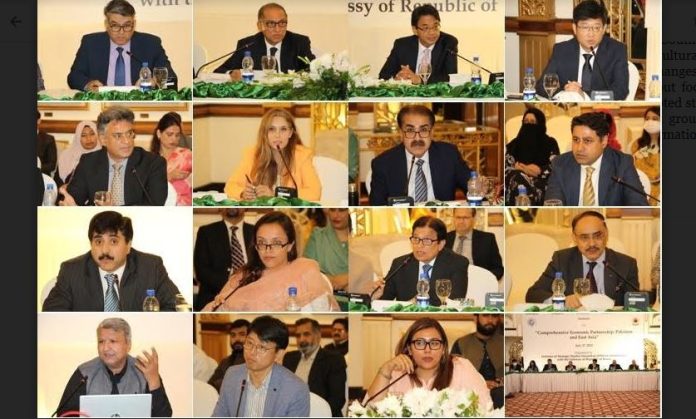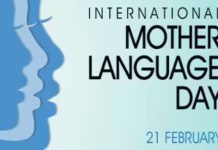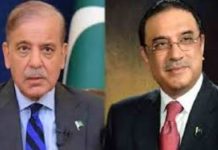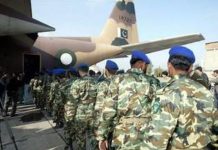Islamabad, JUL 27 /DNA/ – The Institute of Strategic Studies (ISS), in collaboration with the Embassy of the Republic of Korea, organized a policy dialogue on “Comprehensive Economic Partnership: East Asia and Pakistan.” The China-Pakistan Study Centre (CPSC) and Centre for Strategic Perspective (CSP) were organizers of the policy dialogue.
The distinguished speakers of the dialogue were: Ambassador Aizaz Ahmad Chaudhry, DG ISSI; Suh SangPyo, Ambassador of the Republic of Korea; Ambassador Mumtaz Zahra Baloch, Additional Secretary, Ministry of Foreign Affairs, Pakistan;, Dr. Neelum Nigar, Director CSP; Mr. Muhammad Naseer, DG Trade Development Authority of Pakistan (TDAP); Mr. Kim Sung Jae, DG (Korea Trade and Investment Promotion Agency) KOTRA; Mr. Chang Yong Il, Managing director of Samsung Pakistan; Mr. Zhonglei Mou, Chief Operating Officer of Hyundai Nishat; Mr. Jamil Ahmad Qureshi, DG, Board of Investment, Pakistan; Ms. Huma Fakhar, CEO and Founder of MAP Services Group; Mr. Muhammad Zubair, Joint Secretary (Emigration), Ministry of Overseas Pakistanis and Human Resource Development; Mr. Aftab ur Rehman Tarrar, Managing Director of Pakistan Tourism Development Corporation; and Dr. Nadeem Omar Tarar, Gandhara Chair in Cultural Studies, Wah University.
Dr. Talat Shabbir, Director of CPSC, moderated the event. He introduced the theme of the dialogue and highlighted the prospects of Pakistan-East Asia comprehensive economic partnership. He remarked that today’s dialogue analyses Pakistan’s interest in East Asia and ASEAN through the prism of geo-economics and economic security in line with the policy direction of the National Security Policy (NSP) of Pakistan.
Earlier in his opening remarks, Ambassador Aizaz Ahmad Chaudhry gave a brief overview of Pakistan’s relations with the East Asian countries and commended the economic growth of the Asian tigers. Ambassador Chaudhary further said that Pakistan has strong ties with the East Asian countries and, especially, with the Republic of Korea, the cultural ties are strong and overall complement the bilateral ties.
In his welcome remarks, Ambassador Suh SangPyo explained the idea of the comprehensive economic partnership between Pakistan and East Asia. He said that Pakistan and East Asia share promising economic ties. He elucidated that East Asia accounts for one-fourth of Pakistan trade and there will be many opportunities for growing together once the partnership is reached an official agreement. He spoke at length about the economic opportunities and challenges East Asian countries, particularly South Korea, face while interacting with Pakistan. In the end, he extended his gratitude to ISSI for putting its efforts into organizing the event.
The keynote speaker, Ms. Mumtaz Zahra Baloch discussed the challenges that the world is facing in the post-covid era. She expresses her apprehensions on the prevailing competition between US and China which, in her view, was affecting international relations in many ways. She was also sceptical of economic growth while the world was going through a huge economic crisis in the wake of the popular protectionist trends and de-globalization narratives. In this milieu, the present policy dialogue is highly encouraging, she commented. She expressed her optimism about the outcomes that the policy dialogue would have in the short- and long-term. She assured the support of the government and put her faith in the Embassy of the Republic of Korea and the Embassy of the Republic of Pakistan for enahcing the bilateral ties.
In the first session on Trade, Dr. Neelum Nigar explained how Pakistan’s “East Asia Vision” fits well into the comprehensive economic framework that was being discussed. She highlighted major exports and imports of Pakistan from East Asian countries. She provided an in-depth analysis of the economic interactions of Pakistan with South Korea. On the prospects of FTA between both the countries, Dr. Nigar highlighted some key policy options for Pakistan. Similarly, in his presentation, Mr. Muhammad Naseer mentioned all the exhibitions that TDAP is organizing to promote between Pakistan and East Asian countries. He emphasized that TDAP has proactively worked to promote business interactions between Pakistan and East Asia. Mr. Kim Sung Jae described the South Korean economic engagements in Pakistan. He highlighted that Seoul has been promoting local businesses in Pakistan and trying to gain mutual benefits for both nations.
In the second session on Investment, Mr. Chang Yong Il said that Government of Pakistan needs to formulate long term plans through feasibility studies to attract investors. He also said that Pakistan is a potential investment market for Korean businesses. The second speaker of the session, Mr. Zhonglei Mou believed uncertainty surrounding Pakistan and its domestic policies are the biggest hinderance to FDI coming into Pakistan and impacting its supply-chain sustainability. He also added that Pakistan needs to develop skilled labour through education focused on innovation and R&D. Mr. Jamil Ahmad Qureshi said that BOI is working hard to address the challenges being faced by foreign investors in Pakistan. He stressed on the need for investment in export-oriented industries of Pakistan and for that SEZs have been notified by the government and the FDI coming into them have been given protection through federal legislation. Ms. Huma Fakhar stated that bringing investment into Pakistan is difficult due to lack of trade openness. FDI is required to pull up export sector in Pakistan which is important for economic development of the country. G2G and private sector links are necessary for building up economic relations between Pakistan and South Korea.
In the third session on People to People Exchange, Mr. Muhammad Zubair said that Korea has a big opportunity for Pakistani work force which needs to be trained according to their demands. An MoU was signed between Pakistan and South Korea in 2006 regarding sending workforce to South Korea but it is limited in scope and needs to be enhanced through setup of cultural and language centres in both countries. Mr. Aftab ur Rehman Tarrar stressed on the importance of tourism to promote P2P exhanges, as Pakistan is a country diverse in tourist attractions. Pakistan can offer both heritage and adventure tourism to Koreans but focus on marketing side is required. Similarly, Dr. Nadeem Omar Tarar emphasised that Pak-Korea cultural relations are deep rooted stemming out of Gandhara Civilisation which is the birthplace of Buddhism. People to People exchange is hollow if it is not grounded in activities which Government of Pakistan can offer by celebrating Buddhist festivals. Along with infrastructure information/services products also needs to be worked on to enhance relations between the two countries.
The event concluded with the presentation of momentos.

















